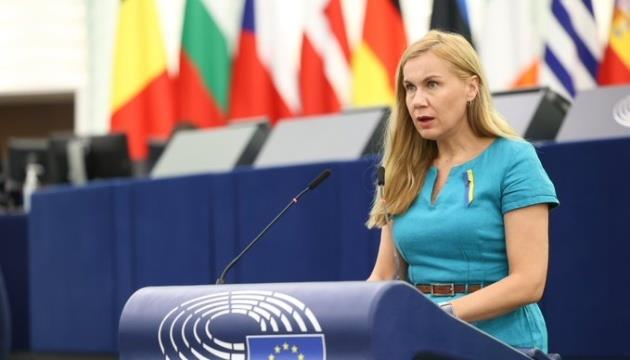
EU Countries Preparing To Stop Russian Gas Transit Through Ukraine - European Commissioner
This was stated by European Commissioner for Energy Kadri Simson during a press conference in Brussels following the EU Energy Ministerial Council, an Ukrinform correspondent reports.
Simson said she had briefed the ministers and given them a clear picture of the gas supply routes when Russian gas transit through Ukraine ends. This will happen exactly one year from now. Member states that will be affected by this development should be prepared for it. There is still quite a long time to prepare for what will happen, she added.
Read also: Naftogaz starts developing decarbonization strategy - CEOShe noted that the EU is ending this year, the second year in a row since Russia invaded Ukraine, on a positive note, even though major challenges remain for EU countries.
As usual during the EU Council in December, ministers reviewed the state of energy security and concluded that Europe is well prepared for the winter: gas storage levels are very high for this time of year and gas prices are at their lowest level since the beginning of the war.
The EU is also making progress in diversifying its supply and in moving away from Russian imports. The total volume of Russian gas imports in 2023 is expected to be around 40 bcm, about half of which will be liquefied and half pipeline gas. This is half of the volume that the EU imported last year, when it imported 80 bcm of Russian gas, the European Commissioner noted.
Read also: European Parliament calls for tougher enforcement of EU sanctions against RussiaShe stated that the European Commission is keeping the specific situation with Russian liquefied natural gas imports under very close control. The Council of Ministers, following technical proposals from the European Commission, adopted a regulatory package that will allow each member state to limit imports of pipeline and liquefied natural gas from Russia for its own gas networks based on existing security of supply assessments. This approach provides member states with a way to reduce Russian gas imports in a proportionate and targeted manner.
Although the current market situation is somewhat healthier, the new geopolitical circumstances bring numerous risks, so the EU should remain prepared for the crisis and continue the precautionary measures introduced last year. The European Commission has proposed to extend three emergency regulatory rules, including those on solidarity between member states, on the development of renewable resources, and on the market correction mechanism. These measures have helped to contain high gas prices in a vulnerable market, and it makes perfect sense to keep them in place for the next year. Ministers have made this decision today, Simson emphasized.
Read also: EU cuts Russian gas supplies from 50% to 8%As Ukrinform reported, Ukraine cannot terminate the current contract on the transit of Russian gas to Europe through its territory, as this would contradict its international obligations. The current contract for the transportation of Russian gas was signed by Naftogaz and Gazprom at the end of 2019 for a period of five years.
According to Energy Minister German Galushchenko, Ukraine will not negotiate its extension after the expiration of the gas transit contract with Russia.
Legal Disclaimer:
MENAFN provides the
information “as is” without warranty of any kind. We do not accept
any responsibility or liability for the accuracy, content, images,
videos, licenses, completeness, legality, or reliability of the information
contained in this article. If you have any complaints or copyright
issues related to this article, kindly contact the provider above.
















Comments
No comment